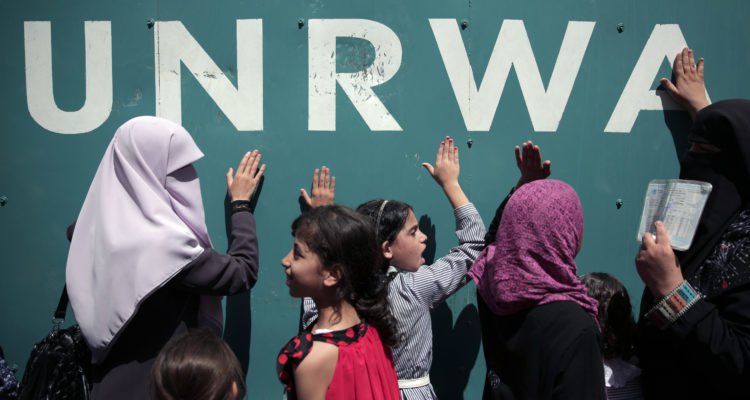Over that past month, members of the US House Middle East Subcommittee raised concerns that humanitarian aid does not reach the Palestinian population, especially in Gaza.
The Center for Near East Policy Research, CFNEPR, contacted 44 nations who donate humanitarian aid to the Palestinian population in Gaza through UNRWA, the United Nations Relief and Works Agency, to determine if any donor nation had cut back on its donations to the Palestinians in Gaza. 75% of the Gaza population dwells in UNRWA facilities.
With the exception of the US, which has cut back on 20% of its donations to UNRWA, every single diplomatic legation that donates to UNRWA responded emphatically that they are not cutting back one penny from aid to UNRWA.
After tabulating the responses from the diplomatic community, CFNEPR calculates that the 1.2 billion dollar UNRWA budget flows like water from the donor to the five million people who benefit from UNRWA health, education and welfare programs – in Gaza, Jerusalem, Judea, Samaria, Lebanon, Jordan and Syria.
This is the breakdown of donor funds to UNRWA from this past year:
https://www.unrwa.org/sites/default/files/overalldonor_ranking.pdf
However, despite assurances of continued cash flow, UNRWA still proclaims to the media that it is bereft of resources to provide basic services. UNRWA Media Adviser Adnan Abu Hasna declared that UNRWA lacks basic food products and that the people of Gaza “have nothing to lose,” adding that “we don’t know yet whether school will open in the coming year…We’re talking about 300,000 students who need to go to school.”(1)
Why , then, does UNRWA claim that it is does not have funds for humanitarian needs?
The answer may lie with Hamas, the terror group now taking credit for bombing civilian communities, which has controlled the workers association and teachers association of UNRWA in Gaza since 1999.
Last week, Hamas launched a massive military training program for UNRWA students which commenced on July 14. (2)
Venue of the Hamas military training program for UNRWA students is along the Gaza fence, placing UNRWA pupils in harm’s way, in violation of treaties that protect the rights of the child.
In the 2015 film, Children’s Army of Hamas (3), a Hamas cabinet member praised cooperation with UNRWA in the 2015 military training program for Hamas, which can be seen at 5:40
Military training for UNRWA students will last until the launch of the school year at the end of August, which will include 120,000 children from the UNRWA schools for the summer.
Questions to all funders of UNRWA(4):
1. Will you verify if funds for UNRWA were diverted to the arms training program for UNRWA students?
2. Will you ask if it is appropriate for a UN agency to allow Hamas on the payroll?
3. Will you ask if is appropriate for a UN agency to hold paramilitary exercises on grounds of UN schools?
(1) https://www.ynetnews.com/articles/0,7340,L-5310037,00.html
(2) https://www.terrorism-info. org.il/en/hamas-announced- opening-summer-camps-children- adolescents-gaza-strip-year- summer-camps-inspired-return- marches-include-military- training-every/
(3) https://www.youtube.com/watch?v=iO4UKXmr8zk
(4) Funders of UNRWA: https://tinyurl.com/ycps9ssh









